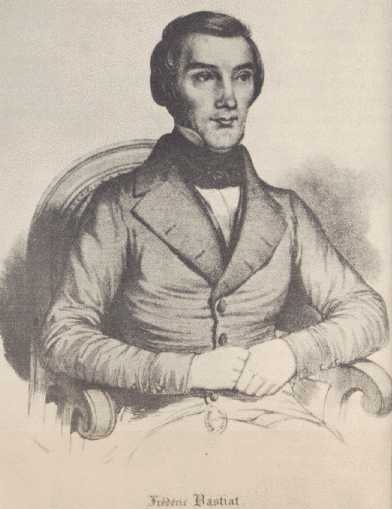Liberty Matters
Bastiat: The Anti-Keynes in More Ways than One

Someone - the late Harry Johnson, perhaps? - attributed part of the success of Keynes's General Theory to its dense, forbidding prose and its poor organization. Having to toil and sweat to decipher Keynes's meaning gave clever young professors in the middle of the last century a sense of achievement that they would not have enjoyed had Keynes's prose been clear and his text sensibly organized.
And, in addition perhaps, opaque terms and rococo jargon are mistaken for signals that the writer is unusually profound.
Bastiat was Keynes's opposite in more ways than one. Not only was Bastiat's substantive economics poles apart from that of Keynes - and not only is Keynes, unlike the obscure Bastiat, still celebrated as one of history's greatest and most influential economists - but Bastiat's prose is always crystal clear, entertaining, and accessible. As in the past, no reader must struggle to grasp Bastiat's meaning. But even professional economists must tussle with and tug at Keynes's prose in The General Theory to uncover its meaning.
Reading Bastiat's works and grasping his meaning gives no scholar any sense of accomplishment. It's all so easy and enjoyable! The typical scholar's conclusion, therefore, is that Bastiat was an intellectual lightweight. That conclusion, of course, is wholly mistaken.
Copyright and Fair Use Statement
“Liberty Matters” is the copyright of Liberty Fund, Inc. This material is put on line to further the educational goals of Liberty Fund, Inc. These essays and responses may be quoted and otherwise used under “fair use” provisions for educational and academic purposes. To reprint these essays in course booklets requires the prior permission of Liberty Fund, Inc. Please contact oll@libertyfund.org if you have any questions.